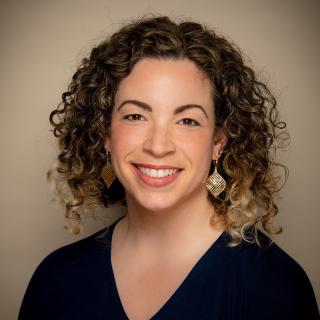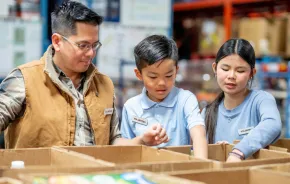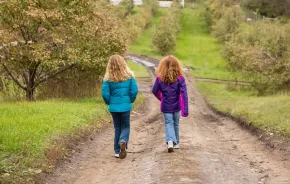
I’ve known since I purchased my house that our neighborhood is a unique mix, a gantlet of “learning opportunities” for my children.
We live on a quiet, tree-lined street surrounded by modest but proudly kept family homes. One of Seattle’s great public elementary schools is around the corner. We’re a couple minutes’ walk from more than one inviting playground, an art school and a French bakery with macarons in 10 flavors.
Also nearby are two strip clubs, a plasma donation center, some run-down smoke shop/convenience stores, a raunchy lingerie store (I have nothing against nice lingerie, but these red-polyester-clad manikins make you afraid, not excited, for bedtime) and, up until Washington recently privatized liquor sales, a run-down liquor shop that — speaking of convenience stores — sourced many of its daily customers straight from the plasma donation center.
I love my neighborhood and the urban richness it lends our lives. But it has never shorted me on complicated topics to navigate early on with my children (try having a 4-year-old ask you what they sell at Centerfolds). I’ve tried to answer their questions honestly while also beginning to impart lessons that stem from some of the values my husband and I hope to pass on to our daughters — self-respect, safety, moderation.
I will admit to having wished, partly in a desperate hope for improved property values but more just to have a few nicer things to look at, that some new establishments would move in and lessen the overall effect of the, uh, less desirable tenants.
Recently a new type of business — the storefront medical marijuana dispensary — has made our neighborhood home, introducing yet another parent-child conversation challenge.
Washington is among 16 states and the District of Columbia where medical marijuana is legal, although conflict between state and federal law and other challenges have made it difficult for dispensaries here to gain business legitimacy. Some cities have banned new dispensaries from opening, but Seattle allows and taxes the dispensaries, which operate as collective grows, as long as they meet code and follow regulations.
There are two dispensaries within five blocks of our home, and at least five more within a mile. Dispensaries can be located as easily as typing in www.thcfinder.com.
As long as dispensaries continue to open for business and gain their footing, and as voters this November consider state Initiative 502, which would legalize and tax the sale of marijuana (for adults 21 and over) for recreational use, the rules of the parenting conversation around drugs will have to change.
We all have to navigate the drug talk with our kids at some point (in fact, more than once: frequent, open conversations are what experts recommend). Studies already suggest that teens regard marijuana as more benign than ever before, and that kids are trying pot at younger ages (and summer months are peak first-time use periods).
But the legal availability of marijuana, medical now and, possibly soon, recreational, pushes us to have the talks even earlier and in a more nuanced way. The old standard conversation line about drugs and alcohol (where we tell our kids that drugs are bad and dangerous and illegal, period) is just not going to cut it anymore.
Potential scenarios:
You’re driving in the car and your young child spots a colorful billboard ad for medical pot with a glistening cannabis leaf and a reassuring slogan about marijuana.
Your preteen is offered pot by a friend and, when she seems worried, her friend reassures her that it’s now legal (maybe her parents even have it around the house) so it’s just fine to smoke.
Your high schooler is aware that pot makes him unmotivated and distracted, and he’s trying hard, with your support, to avoid it. But on his walk/ride home every day there are many tempting reminders that marijuana is more readily available and socially acceptable than ever.
For now, I’m torn about the presence of the dispensaries in my neighborhood and the possibility of more of them (or other types of marijuana storefronts) in the future.
As a homeowner, I’m annoyed because some dispensaries are apparently functioning solely with cash because of difficulties securing banking services (increasing the risk of robbery and crime).
And I’m not convinced they’re harmless to neighbors. One of the dispensaries moved in adjacent to a business I used to frequent often, a salon owned by a woman who does nails and cuts locals’ hair.
Sitting inside the salon one day, after 15 minutes I had a contact high. The smell of pot couldn’t have been stronger if I had been zoned out on a dilapidated couch at a college kegger.
The owner told me that she’d been complaining to the dispensary and her landlord for months but that the smell hadn’t improved. She went home every evening nauseous and with a pounding headache.
I stopped going because the place stinks so bad. Feeling guilty for abandoning a local business, I lumped the pot shop in with the cheesy lingerie store and the plasma center: A place that, selfishly speaking, I’d rather not have in my backyard.
The problem is, I support medical marijuana.
For one thing, I can’t tell my kids that pot is always bad, all the time, when their own grandma, who has multiple sclerosis, has been "prescribed" marijuana to ease her symptoms in the past and might need to use it again in the future.
There are parents who smoke pot regularly. There are some who rely on medical marijuana (and use it responsibly) to ease their pain and help them be there for their own kids. I would not deny them access to something that can help an illness or chronic pain.
One solution would be to have medical marijuana sold in licensed pharmacies, like other medications.
But right now marijuana is classified as a Schedule 1 drug, which means currently it cannot be prescribed and doctors can only recommend the drug. Governors in a handful of states have asked the U.S. Drug Enforcement Administration to reclassify the drug.
Both candidates for governor, Republican Attorney General Rob McKenna and Democrat former U.S. Rep. Jay Inslee, agree on reclassifying marijuana as a drug that can be prescribed by doctors and filled by pharmacists, according to The Associated Press.
Such a reclassification would, in my opinion, create much more legitimacy around medical marijuana and its sale.
I’m less clear on recreational use. What might seem fine in concept throws me in practice: The bottom line is that I still don’t want my kids more exposed to pot than they already are.
Initiative 502 would create a system of state-licensed growers, processors and stores where those 21 and over could buy up to one ounce of dried marijuana; one pound of marijuana-infused product in solid form, such as brownies; or 72 ounces of marijuana-infused liquids.
How many of those stores will be in my neighborhood, among the playgrounds and smoke shops?
The initiative is well-funded (an ad campaign is upcoming) and has both endorsements and opposition from legal and law enforcement groups and previous supporters of marijuana decriminalization. The majority of those recently polled statewide currently say they support the initiative.
The argument we hear a lot is that recreational pot would be, in practice, just like alcohol: for adults to use responsibly.
The problem for me is that kids are not notoriously responsible. The teenage years are not marked by impeccable judgment — they’re meant to help develop the brain so that one day it can exercise impulse control and make great choices. But that takes time, time I’d rather my kids and their friends don’t spend lounging on a couch in a pot-head fog, thinking “Hey, it’s legal, and it’s everywhere, so it must be no big deal for me to use it.”
Maturing is already difficult for our generation of kids, who are faced with a tough economy, rising college tuition, a competitive and high-pressure academic playing field and, for some, a lack of support systems and a crisis of confidence.
Do they need an easier ticket to get high?
As the rules change, I know I’m not alone figuring out how to tackle marijuana with my kids in a multifaceted way.
They haven’t asked about our dispensary neighbors yet. When they do, I will try to explain that marijuana, like other medicines, can be very helpful to people who are sick, but that any adult medication should never be used by kids. And that drugs, including marijuana, can range from mildly to cripplingly addictive and can derail them from leading happy, healthy and productive lives.
In the meantime, I hold out hope that this fall’s voting cycle might bring more clarity to the haze around dispensaries. I hope that Washington parents exercise their voices in the matter.











